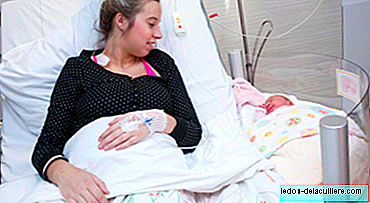
As we saw, the danger of Rh incompatibility for pregnancy occurred after the second pregnancy. What happens is that, As the mother is Rh negative, her organism cannot tolerate the presence of Rh positive red blood cells (from the baby), which after a first pregnancy already recognizes.
Then, the mother's immune system treats Rh-positive fetal cells as if they were a foreign substance, creating antibodies against these fetal blood cells that can cross the placenta to the fetus, where they destroy the circulating red blood cells of the fetus.
In the past, Rh incompatibility was a very serious problem since it used to cause important disorders in the health of the fetus or newborn, with different symptoms that can range from mild to fatal that would be encompassed in the so-called Rh incompatibility hemolytic disease.
Currently, significant medical advances have been made for prevent complications associated with Rh incompatibility and treat the newborn affected by this problem.
Today, Rh incompatibility can be prevented almost entirely. When a woman with the potential to develop Rh incompatibility is pregnant, there are medical advances to prevent it in a simple way as we will see below.
Rh immunoglobulin injections
If there is a risk of developing Rh incompatibility, doctors administer two injections of Rh immunoglobulin during the first pregnancy. Special immunoglobulins, called RhoGAM, are used to prevent Rh incompatibility.
The first injection is given around 28 weeks of pregnancy and the second in the immediate postpartum period, within 72 hours after delivery.
What Rh immunoglobulin does is act like a vaccine, preventing the mother's body from generating dangerous Rh antibodies that can cause serious complications in the newborn or complicate future pregnancies.
You can also inject this dose of Rh immunoglobulin into a woman who has just had a miscarriage, an amniocentesis or some type of bleeding during pregnancy.
Currently, the success rate of Rh immunoglobulin injections to prevent incompatibility is very high, although there are some exceptional cases in which we must act with additional measures as we will see soon in a new post.
In short, thanks to imunoglobulin injections Rh incompatibility prevention is possible so that there are no complications or affect the health of the mother and the baby, if detected early. Prenatal consultations are fundamental in this regard, if we are not sure what Rh factor we have.












